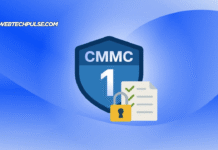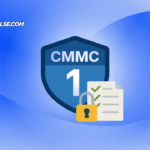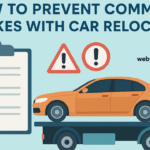Taking technology for granted has its implications, especially when it means you are sacrificing your privacy in return. Surprisingly, it’s not just the NSA, but governments around the world are working tirelessly to pass laws that give them access to monitor, store, and review every phone call, message, and email. This is quite alarming, and causes concern to any individual who is online. If you are also concerned about protecting your privacy online, this is what you should consider.
Is encryption secure?
The revelation of the NSA’s plans to deliberately remove global encryption standards, coupled with the threat of the Heartbleed virus, has caused many people to lose confidence in encryption. Not only is it a bad idea to belittle the NSA’s ability to compromise encryption methods, but at the same time it’s a huge mistake. But on the other hand, encryption is your best defense against these constant attacks since encoders like OpenVPN and AES are secure to some degree. To tell the truth, encryption is your best bet to protect your online presence against potential adversaries other than the NSA.
Change your passwords immediately
Since the open source of SSL versions was exploited, the Heartbleed virus has proven to be the most catastrophic of all internet security threats to date. You have to keep in mind that SSL is commonly used as a cryptographic library on the internet. It is not only used by VPN and cloud service companies, but also by banks. More than two thirds of internet users were affected by this virus and it went unnoticed for quite a long time, a year and a half to be precise. This virus gave attackers the opportunity to access confidential information and steal passwords. The problem worsened further when the affected companies claimed to have rectified the problem, even if they had not.
If you are not sure if an online service has resolved this issue, it would be nice to ask them. If the problem exists, you should change your passwords immediately.
Protect your browser
There are tons of other potential risks on the internet. As we mentioned earlier, there are different organizations besides the NSA that are constantly looking for holes to access your information, and this also includes advertisers. These advertisers resort to deceptive tactics to follow your internet presence and sell you things even when you are not interested. Even if people know how to clean HTTP cookies, they are not protected from these attacks. Most browsers now support private browsing, which gives you the ability to browse the internet without saving your search history while blocking advertiser cookies. As long as your browser is secure, there are very few things that web tracking technologies can do to reach you.
Protect your email
Most email service providers offer encrypted connections between the email server’s starting point and the server’s ending point. Google has also taken drastic steps to ensure that each and every weakness in the SSL implementation is removed. However, this has proven to be of little use if your information continues to be delivered on a silver platter to the NSA by your email server. It is true that smaller providers are not affected, but it is only a matter of time until they are within the reach of supervisory organizations.
Since email encryption doesn’t necessarily encrypt everything, like the recipient’s and sender’s email address and subject, it can still cause a lot of damage if it falls into the wrong hands. All of this can be prevented by installing end-to-end email programs like Pretty Good Privacy.
Protect your conversations
You have to keep in mind that the phone calls you make frequently are not secure. Essentially, they cannot be made secure either. It is not just the NSA, but governments around the world are very excited to record and monitor your calls. Even if you buy a disposable cell phone, it turns out to be of little use since a lot of information is collected in the form of metadata.
If you want to protect your conversations, you can do it with the help of VoIP technology (by its Internet name, Voice-over Internet Protocol) with end-to-end encryption. These VoIP allow you to send messages and make calls over the internet. It is not only effective, but also quite accessible.
As long as you carry your smartphone, you can be tracked. It has nothing to do with GPS, but each of the towers you use will track you. In this case, your only solution would be to leave your phone at home and make sure to disable your location history.
Protect your online storage
As the speed of the internet increases, various cloud storage services become cheaper. But the real problem here is making sure that your files in the cloud are safe. This is where most of the big players like Amazon, Apple and Google have failed their clients since they have always collaborated with the NSA. However, that does not necessarily mean that you are unprotected. You still have ways to make sure your data stays safe in the cloud. You can start by manually encrypting each of the files before uploading them. We also recommend using a cloud storage service with automatic encryption, mainly because they encrypt your files for you.
Consider using a search engine that doesn’t track you
Many people are unaware of the fact that search engines like Google keep a close eye on them. The date and time of the consultation, the user’s IP address , search terms and cookie ID are transmitted to specifically requested web pages. The owners of those pages can then use the information to create an imprecise and embarrassing profile of you, which is used to tailor advertisements for your theoretical needs. What’s more, your search data is easily accessible by courts and governments around the world making it an even worse nightmare.
All this can be avoided by using search engines that do not keep a record of your activity. DuckDuckGo has grown immensely in popularity since it was revealed that the NSA spies on individuals online. Users visiting the search engine went from two to three million in less than eight days. Additionally, these search engines avoid the use of filter bubbles. Since most search engines use your search history to profile you, this generates new search terms that may interest you. But that’s not what happens with search engines like YaCy, StartPage and Gibiry, and they don’t track you either.
Use firewalls, antivirus and antimalware programs
There is no better way to protect your online presence from such attacks than with the help of firewall, antivirus and antimalware programs. What’s more, it’s even more important that you make sure these programs are up to date at all times. Viruses not only harm your system, but give computer criminals the ability to access your emails, files, and passwords. And it is important to mention that these programs can also be installed on your mobile devices, since they are more prone to attacks and are often ignored.
Additional tips and tricks to keep in mind
If you are looking for additional tips and tricks to protect your privacy online, you are in the right place. You have to understand that commercial programs cannot be trusted under any circumstances. You can start by protecting your online presence by switching to non-commercial programs or operating systems, since they don’t have a backdoor built into them by the NSA. Operating systems like Ubuntu are quite effective compared to Windows.
On the other hand, you can further protect your online presence through virtual machines. These programs simulate an operating system as if it were running on a physical hard disk. One of the best things about this approach is that the host computer is out of range of attackers and viruses. What’s more, these virtual machines can also be encrypted to increase security.
conclusion
After reading this article, you may wonder if your privacy is worth it at the end of it all. Needless to say, your privacy is a basic human right, but it comes at a cost. You will have to think about the sacrifices you will have to make to protect your privacy online. Rest assured that no individual would like each of their emails, calls, and messages to be recorded, reviewed, and then exploited. However, maintaining your privacy will not be an easy task for years to come. With the aforementioned factors in mind, you now have the necessary tools to improve your privacy on the internet. It’s true when they say nothing is foolproof, but that shouldn’t stop you from trying your best to keep others from invading your life.












